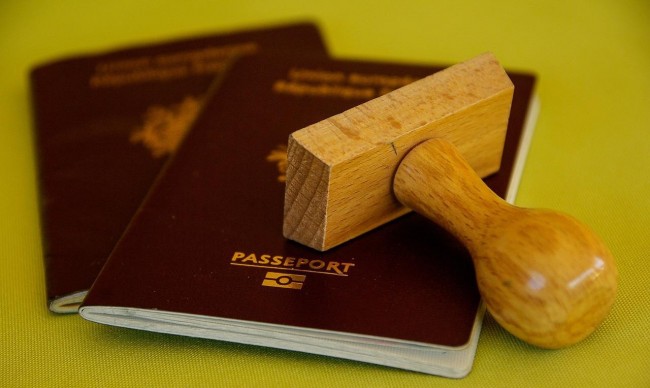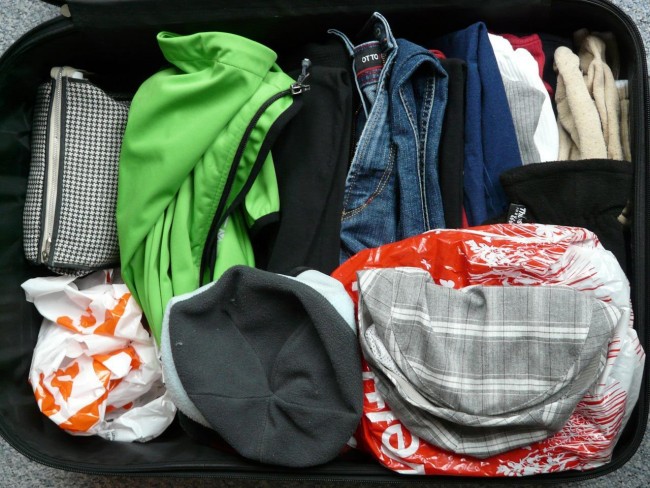Maybe you’re itching to get away from home. Maybe you’re feeling more than a little bit of wanderlust. You want to experience South America, or Europe, or Southeast Asia, or some other place you haven’t visited before. But maybe you’ve also heard the horror story about a backpacking couple that had to scrub toilets just to pay for their trip around the world. While many would point at that case as two dreamers not thinking things through, it’s actually not: this couple actually sees menial labor as a lesson in humility and a way to really experience everything the world has to offer. It’s a high cost, but it’s a cost they willingly embrace to travel to awesome places.
So yes, traveling can be annoying. It doesn’t always get to the point where you have to scrub toilets, but even normal travel hassles can make you want to tear out your own hair, which is why some people may scoff at the idea of going off to become a stranger in a strange land. But if you know what you’re in for, you can make it a great experience.
Papers, Please
 One of the most overlooked truths on traveling, at least to those who aren’t jet-setters or globe-trotting backpackers, is that passports aren’t hard to get unless you wait till the last minute. Even if you don’t plan to travel abroad, get a passport. You never know when you’ll get a chance to go overseas, plus it’s another form of official ID that you can use. And just before you travel abroad, you’ll want to get a few passport photos taken and staple them inside your passport because every so often, authorities of your host country will ask for them. You may also want to copy your passport or scan it in case it gets lost or stolen.
One of the most overlooked truths on traveling, at least to those who aren’t jet-setters or globe-trotting backpackers, is that passports aren’t hard to get unless you wait till the last minute. Even if you don’t plan to travel abroad, get a passport. You never know when you’ll get a chance to go overseas, plus it’s another form of official ID that you can use. And just before you travel abroad, you’ll want to get a few passport photos taken and staple them inside your passport because every so often, authorities of your host country will ask for them. You may also want to copy your passport or scan it in case it gets lost or stolen.
Having a passport is just the first step: one of the things you need to know before traveling is if you need a visa to get into the foreign country you want to travel to. Visa requirements are incredibly complicated, and they basically depend on where you’re from, where you’re going, and the purpose of your trip. Sometimes, you don’t need a visa at all, but when you do, the process of getting it can get really confusing and costly, plus it could take months. Plan your trip abroad well in advance especially if it’s your first time. To be absolutely positive about your visa requirement, contact the embassy of the country you want to visit.
And whatever you do, don’t overstay your welcome. Visas are only valid for a certain period, depending on what type of visa you get. Travel visas are typically quicker to expire than student visas, for example. Worst case is that when you overstay, you will get banned from ever visiting your host country again.
Of Cash, ATMs, and Exchange Rates
Money doesn’t make the world go round, but you need it to go around the world. The overlooked truth about traveling is that it makes you really fiscally aware. How much things cost, how much money you have, how much the exchange rate is—experiencing a foreign economy firsthand probably isn’t anyone’s idea of being adventurous, but it really is an adventure you have to prepare for.
 Rule number one is never keep all your cash in one place. Carry some in your wallet, put some in your luggage or leave some with a trusted companion, because you don’t want all your money to get lost or stolen at once. Also, try to have a clear itinerary for your trip. They say traveling is about the journey, not the destination. On the other hand, not knowing anything about the place you’re going to can be really costly, especially if you get lost and have to pay a cabbie through the nose to drive you around for hours. If you have to hail a cab, talk to him and learn as much about the local culture as you can.
Rule number one is never keep all your cash in one place. Carry some in your wallet, put some in your luggage or leave some with a trusted companion, because you don’t want all your money to get lost or stolen at once. Also, try to have a clear itinerary for your trip. They say traveling is about the journey, not the destination. On the other hand, not knowing anything about the place you’re going to can be really costly, especially if you get lost and have to pay a cabbie through the nose to drive you around for hours. If you have to hail a cab, talk to him and learn as much about the local culture as you can.
ATMs are usually a better option than exchanging your money for foreign currency at the airport, where exchange rates can get pretty steep. If you plan to use your credit card or ATMs on a trip abroad, call your bank beforehand and let them know so that they don’t freeze your account. As far as ATM cards go, Mastercard or VISA cards are usually the most favorable to use, but there could still be hidden costs if you withdraw from machines that aren’t part of your bank’s official network of partners.
Helter Shelter
Another big part of your adventure overseas is finding a place to stay. Some of the most epic traveling trends now involve methods of getting accommodations abroad. Discovering the best among traditional options like hotels and resorts has become much easier for travelers with sites like TripAdvisor online. Whether you’re looking for old reliable establishments like the Ritz Carlton or hidden gems in the local scene, travel review sites are a great source of information.
But if you want a more real local experience, there are some alternatives you can go for. For example, you can try house swapping, where you and a foreign contact visit each other’s countries and stay at each other’s houses for the duration of your trips. There’s also AirBnB, an online service where you can find local hosts with spare housing space who are willing to accommodate foreigners for a fee. An even more radical alternative is couchsurfing, a not-for-profit initiative by global travelers-at-heart where hosts let travelers literally just crash on their couches. Not only is this a great way to get accommodations for free abroad, it’s also a way to meet awesome people around the world.
Of course, these travel options are only practical if you’re just staying for a while. If your trip abroad is part of a step in your professional or academic career, then you’ll have to make arrangements for more long-term accommodations. Plan well in advance and find a place to rent with reasonable rates, taking your income, exchange rates, and other costs of living into account.
Overseas Study: The School of Hard Knocks
A lot of people nowadays travel by participating in an academic program or internship.. The chance to go to a foreign land (for free, in some cases) is just one of the opportunities. You may want to work in a field or on a particular research project that piques your interest, or maybe you want to study under a particular professor or world authority, in which case the best school for you may be located abroad. Going abroad can also give you access to learning materials and techniques that you can’t get at home. And on the career side, if you have a passion for a particular subject but can’t find a sustainable job in that field in your home country, maybe going overseas is a better option.
If you’re interested, you’ve got to research or ask about the academic guidelines of your host country. A lot of countries differ in their academic standards (the European Union doesn’t even have a region-wide policy in accepting academic diplomas), so if you don’t do your due diligence, you may unexpectedly end up having to take a couple of extra years to earn academic credits. Aside from that, you have to consider costs of living, culture shock, and other hidden costs of study abroad. But on the plus side, some countries offer some short programs where you can get a master’s degree in one year. You may also enjoy smaller tuition costs or scholarships exclusive to foreign students. Some countries even cover medical costs for foreign students by including them in the national healthcare service.
The World is Your Oyster
The chances of meeting awesome hosts and diving deep into your area of academic interest aren’t the only reasons why you should travel abroad. For one thing, when you go home (assuming you don’t decide to just stay and apply for citizenship in your host country), you’ll have a wealth of stories to share with your loved ones and peers. You’ll learn about foreign customs, and gain a new appreciation for foreign food and foreign culture in general. Being a legal alien may make you helpless, like a guppy out of the fishbowl, but it will force you to connect with people you otherwise wouldn’t meet, let alone speak with. You may make new connections and gain new lifelong friends. And even if you don’t, learning about the similarities and differences among people, the walls that divide us and the bridges that link us, will expand your mind in ways you never dreamed possible.
Finally, traveling doesn’t just highlight the differences in others: whether it’s because of the influence of a foreign culture or the freedom from social, peer or familiar pressures, you might be surprised about the differences you’ll see in yourself. It’s never easy to leave home, but when you do it right and you know what you want to get out of it, it’s definitely worth the trouble.
Photo Credits
Passport – Photo courtesy of jackmac34 via Pixabay
Wallet – Photo courtesy of stevepb via Pixabay
Luggage – Photo courtesy of Hans via Pixabay
Students – Photo courtesy of gratisography.com
Girl on bridge – Photo courtesy of GLady via Pixabay
Guest Author Bio
Anna Rodriguez
 Anna Rodriguez is a manager and a passionate writer. She also has varied background in real estate brokerage, investing, home design, travel, and frugal living. She owns Homey Guide Blog.
Anna Rodriguez is a manager and a passionate writer. She also has varied background in real estate brokerage, investing, home design, travel, and frugal living. She owns Homey Guide Blog.
Follow Anna: Twitter
Recent Guest Author Articles:
- Home Is Where the Health Is: Simple Shifts for a Happier You
- Why Speed and Reliability Matter for Business Connectivity
- How Does Ultrasound Therapy Enhance Skin Firmness Without Surgery?
- From License to Lifestyle - How State Choice Impacts Nursing Journeys
- Your Online Reputation Is Everything (Here's How to Build It Fast)





Please Share Your Thoughts - Leave A Comment!